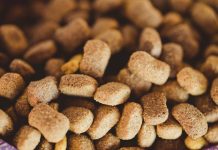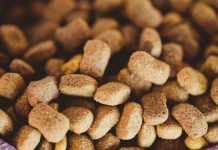Welcoming a new puppy into your home is a joyful experience filled with playful moments and unconditional love. As you embark on this exciting journey, understanding the nutritional needs of your furry companion is essential to ensuring their healthy growth and development. Puppies, with their boundless energy and rapidly developing bodies, require a balanced diet that supports their unique nutritional requirements. In this guide, we will explore the key components of a puppy’s diet, offering insights and practical tips to help you provide the best start in life for your beloved pet. Whether you’re a first-time puppy parent or a seasoned dog lover, this article aims to equip you with the knowledge needed to nurture your puppy’s health and happiness.
Choosing the Right Food for Your Puppys Growth
When nurturing your puppy’s growth, it is essential to focus on providing a balanced diet tailored to their specific needs. Puppies require a higher calorie intake compared to adult dogs, along with a diet rich in proteins, fats, and essential vitamins and minerals. Proteins are crucial for building strong muscles and tissues, while fats provide the necessary energy for their playful nature. Incorporate foods that contain omega-3 fatty acids for brain development and a shiny coat.
- Choose a high-quality puppy formula with real meat as the first ingredient.
- Ensure the presence of calcium and phosphorus for bone health.
- Look for foods fortified with DHA for cognitive development.
- Avoid fillers and artificial additives that may harm their growth.
- Consult your veterinarian to tailor a diet plan specific to your puppy’s breed and size.

Balancing Proteins and Fats for Optimal Health
In the journey to nurturing a happy and healthy puppy, understanding the delicate interplay between proteins and fats is crucial. Proteins are the building blocks for your puppy’s muscles, skin, and coat, playing a pivotal role in growth and development. Opt for high-quality protein sources like chicken, beef, or fish to ensure your puppy receives the essential amino acids needed for robust health. Fats, on the other hand, are a concentrated source of energy and are vital for brain development, as well as maintaining healthy skin and a glossy coat.
To achieve the right balance, consider the following tips:
- Choose a puppy food formula that specifies the source of proteins and fats on the label.
- Ensure the food contains the right ratio of omega-3 and omega-6 fatty acids to support cognitive function and reduce inflammation.
- Avoid foods with excessive fillers that can dilute the nutritional value of the proteins and fats.
- Consult your veterinarian to tailor the diet to your puppy’s specific breed and activity level.
By focusing on these aspects, you’ll help your puppy grow into a strong, vibrant dog with a diet that’s tailored to its unique nutritional needs.

Incorporating Essential Vitamins and Minerals
Ensuring your puppy receives the right balance of vitamins and minerals is crucial for their development and overall well-being. Puppies, like humans, require a variety of these essential nutrients to support their growth, immune system, and bone health. It’s important to include a diet rich in the following:
- Calcium and Phosphorus: These minerals are vital for healthy bone development. Puppies need the right ratio to avoid bone abnormalities.
- Vitamin D: This vitamin works in tandem with calcium and phosphorus, aiding in their absorption and utilization.
- Vitamin A: Essential for maintaining good vision and supporting immune function.
- Omega-3 and Omega-6 Fatty Acids: These contribute to healthy skin and coat, as well as brain development.
When choosing a diet for your puppy, consider consulting with a veterinarian to ensure it meets all their nutritional needs. Look for puppy-specific formulas that are designed to provide the optimal balance of these nutrients, or discuss the possibility of supplements if necessary. Remember, a well-nourished puppy is a happy and healthy puppy!

Creating a Consistent Feeding Schedule
Establishing a routine for your puppy’s meals is crucial for their development and well-being. Puppies thrive on predictability, and a regular feeding schedule helps regulate their digestion and energy levels. Consider feeding your puppy three to four times a day, adjusting the frequency as they grow. Consistency is key, so aim to serve meals at the same times each day. This routine not only helps in monitoring their appetite and health but also strengthens the bond between you and your furry friend.
When creating your puppy’s feeding schedule, take into account their age, breed, and activity level. Here are a few guidelines to keep in mind:
- Age: Younger puppies (under six months) typically need more frequent meals.
- Breed: Larger breeds may require more food but spread out over fewer meals.
- Activity Level: Active puppies might need a bit more nutrition to support their energy needs.
By setting a regular meal schedule, you’re not only catering to their nutritional needs but also instilling good eating habits that will benefit them for a lifetime.
















